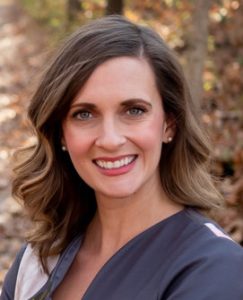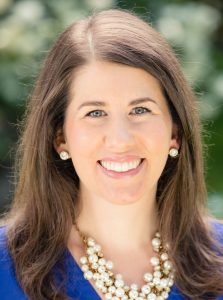A team of Baylor University researchers has landed a $2.5 million grant to train theologians how to use insights gleaned from the psychological sciences to study how human beings can live their most fulfilling lives.
But the scholars involved also hope the three-year project will push back against the science-versus-religion debate that persists within some quarters of higher education and Christianity.

Devan Stahl
“We are committed to the idea that theology and science go well together. We’re not in competition,” said Devan Stahl, assistant professor of religion and a theological bioethicist at Baylor.
She will work on this project in partnership with Sarah Schnitker, associate professor of psychology.
“Our disciplines go about questions very differently and in many ways can be complimentary. But to help people live their best lives, there is no inherent anti-scientism we as Christians should have,” said Stahl, the principal investigator in the project funded by a John Temple Foundation grant.
For the initiative, Stahl and Schnitker are seeking junior and midcareer theology faculty members interested in learning how to identify and use psychological research findings and techniques for their own work on issues around the quality of human life. Through the grant, participants will be provided in-depth training in finding and interpreting psychological studies, undergoing mentor-driven lab training and engaging in interdisciplinary collaboration with scientists on independent studies.

Sarah Schnitker
The focus of inquiry is known as “human flourishing,” which also may be described as the ways people find to live the best lives possible within their settings.
“Living a good life includes a match between the individual and their context and how both contribute to living in a positive way or being the best version of you,” Schnitker said.
Within the realm of science, the disciplines of philosophy, psychology and religious studies have long examined what ideal human lives should look like, she said.
Theology, meanwhile, has examined the question in light of ethics, Scripture and spirituality instead of through the lens of purely humanistic or materialistic values, Stahl said.
“For Christians, it’s friendship with God, living out a Christian call to love our neighbors well. So, what it means to flourish may not look” the same from a purely scientific or cultural standpoint.
“Theology gives the end point, and psychology is about how you get there.”
But both approaches have strengths, Schnitker explained. “Theology gives the end point, and psychology is about how you get there. Theologians can provide some great hypotheses, but psychologists can take that and get down to the nitty gritty of contextualizing.”
Bringing those two perspectives together is the purpose of the program, which is titled “Illuminating Theological Inquiry and Christian Ethics Through Training in Psychological Science.”
“We hope to see more interdisciplinary work among scholars,” Schnitker said. “This would include designing studies together and theologians wanting to become partners in research with scientists.”
Stahl included herself in that aspiration. “As someone who is theologically trained, a lot of my work is in reading books and going to churches. My training has not included empirical work and testing hypotheses and doing the kind of work scientists are doing.”
The Baylor initiative will give theologians a starting point for entering into that kind of study and to enhance their work on human flourishing, Stahl said. “Unless I get that initial education, I can’t be in the conversation. But being in that conversation means I’m going to the lab and seeing what they are doing.”
That’s where the value of collaboration comes in, she added. “I’ll be able to find partners who can help me come up with a study about relieving suffering, for example. A mentor can help me ask questions that make sense.”
Another hope is that psychological researchers, often known for strict adherence to the scientific method, will be open to the ideas that theologians bring to the table, Schnitker said, adding that the program is screening scientists for that very issue. “We only involve those who value this process, those who have intellectual humility within their own discipline.”
Baylor University is the ideal site for the initiative, she said, because both she and Stahl are devoted to their Christian mission and to cutting edge science. “We want to change the academy, but the goal also is that maybe this can trickle down to churches and to the people in the pews to not see faith and science as opposing forces, but as partners with the same goals.”


